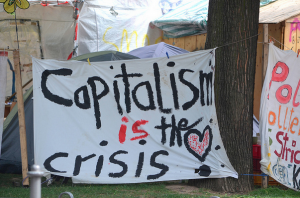Newsletter: At A Critical Juncture, Rise Up!
We are at a critical juncture in world history. We live in a globalized world. That is the reality. But at present, it is a world that is increasingly dominated by multi-national corporations and big finance capital that controls national policies. The result of this system is exploitation of people and the planet and the use of the security state to oppress those who resist or to gather resources.
William Dalrymple reminds us of the serious consequences that can result from such an arrangement in his article about the East India Company.
It is up to us to rise together and fight back, to resist the expansion of corporate power and to build new systems that are more democratic, just and sustainable. We are with you in this struggle. People power, applied strategically, can succeed.














